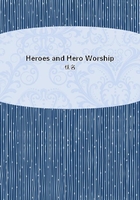
第80章
Truly, without the French Revolution, one would not know what to make of an age like this at all. We will hail the French Revolution, as shipwrecked mariners might the sternest rock, in a world otherwise all of baseless sea and waves. A true Apocalypse, though a terrible one, to this false withered artificial time; testifying once more that Nature is _preter_natural; if not divine, then diabolic; that Semblance is not Reality; that it has to become Reality, or the world will take fire under it,--burn _it_ into what it is, namely Nothing! Plausibility has ended;empty Routine has ended; much has ended. This, as with a Trump of Doom, has been proclaimed to all men. They are the wisest who will learn it soonest. Long confused generations before it be learned; peace impossible till it be! The earnest man, surrounded, as ever, with a world of inconsistencies, can await patiently, patiently strive to do _his_ work, in the midst of that. Sentence of Death is written down in Heaven against all that; sentence of Death is now proclaimed on the Earth against it: this he with his eyes may see. And surely, I should say, considering the other side of the matter, what enormous difficulties lie there, and how fast, fearfully fast, in all countries, the inexorable demand for solution of them is pressing on,--he may easily find other work to do than laboring in the Sansculottic province at this time of day!
To me, in these circumstances, that of "Hero-worship" becomes a fact inexpressibly precious; the most solacing fact one sees in the world at present. There is an everlasting hope in it for the management of the world. Had all traditions, arrangements, creeds, societies that men ever instituted, sunk away, this would remain. The certainty of Heroes being sent us; our faculty, our necessity, to reverence Heroes when sent: it shines like a polestar through smoke-clouds, dust-clouds, and all manner of down-rushing and conflagration.
Hero-worship would have sounded very strange to those workers and fighters in the French Revolution. Not reverence for Great Men; not any hope or belief, or even wish, that Great Men could again appear in the world!
Nature, turned into a "Machine," was as if effete now; could not any longer produce Great Men:--I can tell her, she may give up the trade altogether, then; we cannot do without Great Men!--But neither have I any quarrel with that of "Liberty and Equality;" with the faith that, wise great men being impossible, a level immensity of foolish small men would suffice. It was a natural faith then and there. "Liberty and Equality; no Authority needed any longer. Hero-worship, reverence for _such_ Authorities, has proved false, is itself a falsehood; no more of it! We have had such _forgeries_, we will now trust nothing. So many base plated coins passing in the market, the belief has now become common that no gold any longer exists,--and even that we can do very well without gold!" I find this, among other things, in that universal cry of Liberty and Equality; and find it very natural, as matters then stood.
And yet surely it is but the _transition_ from false to true. Considered as the whole truth, it is false altogether;--the product of entire sceptical blindness, as yet only _struggling_ to see. Hero-worship exists forever, and everywhere: not Loyalty alone; it extends from divine adoration down to the lowest practical regions of life. "Bending before men," if it is not to be a mere empty grimace, better dispensed with than practiced, is Hero-worship,--a recognition that there does dwell in that presence of our brother something divine; that every created man, as Novalis said, is a "revelation in the Flesh." They were Poets too, that devised all those graceful courtesies which make life noble! Courtesy is not a falsehood or grimace; it need not be such. And Loyalty, religious Worship itself, are still possible; nay still inevitable.
May we not say, moreover, while so many of our late Heroes have worked rather as revolutionary men, that nevertheless every Great Man, every genuine man, is by the nature of him a son of Order, not of Disorder? It is a tragical position for a true man to work in revolutions. He seems an anarchist; and indeed a painful element of anarchy does encumber him at every step,--him to whose whole soul anarchy is hostile, hateful. His mission is Order; every man's is. He is here to make what was disorderly, chaotic, into a thing ruled, regular. He is the missionary of Order. Is not all work of man in this world a _making of Order_? The carpenter finds rough trees; shapes them, constrains them into square fitness, into purpose and use. We are all born enemies of Disorder: it is tragical for us all to be concerned in image-breaking and down-pulling; for the Great Man, _more_ a man than we, it is doubly tragical.
Thus too all human things, maddest French Sansculottisms, do and must work towards Order. I say, there is not a _man_ in them, raging in the thickest of the madness, but is impelled withal, at all moments, towards Order. His very life means that; Disorder is dissolution, death. No chaos but it seeks a _centre_ to revolve round. While man is man, some Cromwell or Napoleon is the necessary finish of a Sansculottism.--Curious: in those days when Hero-worship was the most incredible thing to every one, how it does come out nevertheless, and assert itself practically, in a way which all have to credit. Divine _right_, take it on the great scale, is found to mean divine _might_ withal! While old false Formulas are getting trampled everywhere into destruction, new genuine Substances unexpectedly unfold themselves indestructible. In rebellious ages, when Kingship itself seems dead and abolished, Cromwell, Napoleon step forth again as Kings.